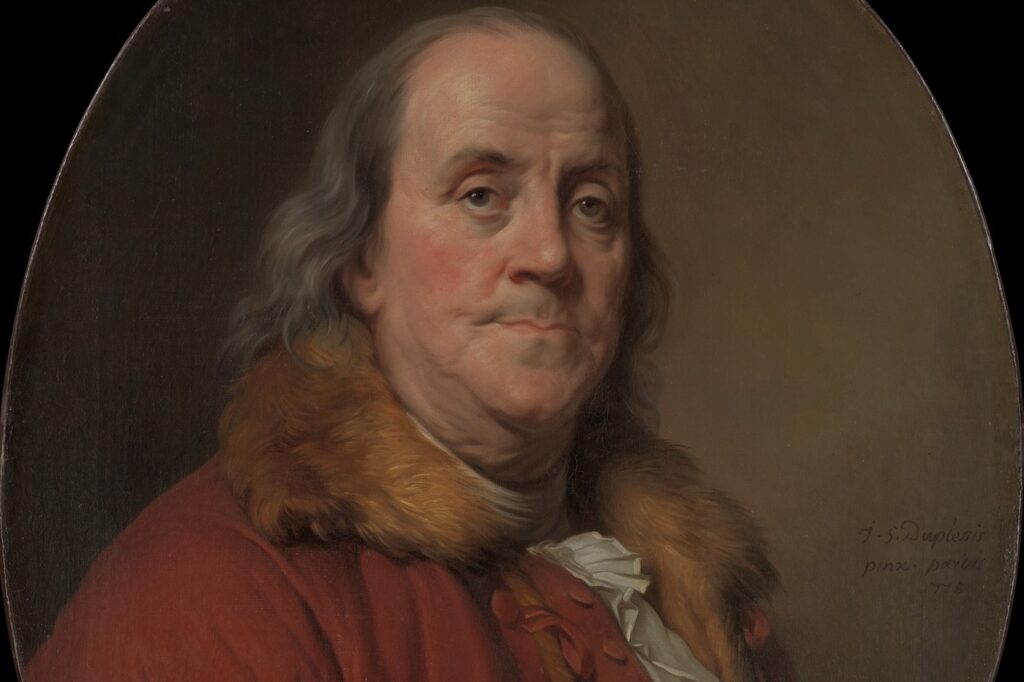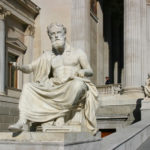Several months ago, I devoted this column to the subject of biographies, saying they often presented us with “the beating heart of history.” But the value of a biography rests on its truth, and so the author must have a certain degree of detachment from his subject. Judgments of behavior and character are impossible to avoid, but for the judgments of author and reader alike to be fair ones, they must rest on a factual account that does not tilt for or against the person being judged.
What then of autobiographical writing, in which detachment is impossible because the author is the subject? Whether it is an account of one’s whole life, or a memoir focused on a certain period or aspect of one’s life, or a published journal or diary, the author is too deeply interested (in both senses of that word) to achieve a really critical distance. Can the autobiographer, the memoirist, or the diarist be trusted?
I thought of this when reading Mel Brooks’s memoir, which I quoted here last month. One of the most striking passages in All About Me! comes when Brooks blandly mentions how hard it was to work for nearly a decade on writing fresh material for Sid Caesar’s television show, and says almost as an aside: “that’s probably what led to the end of my first marriage.” In the next paragraph he names his three children by this marriage and says they were “always a source of comfort and happiness.” But here’s the strange thing. It’s the first time he mentions having been married at all. What’s more, neither here nor anywhere else in the book does he tell the reader even the name of his first wife, let alone where and when they were married, or anything else about their relationship. By contrast, his courtship of and marriage to his second wife, the actress Anne Bancroft, is lovingly described.
Start your day with Public Discourse
Sign up and get our daily essays sent straight to your inbox.What are we to make of an autobiographer who omits any more account than this of a relationship that was a central part of his life for (according to Wikipedia) about nine years? Can he be trusted? On balance, I think he can. Brooks subtitled his book My Remarkable Life in Show Business, and that’s what readers come to the book wanting to learn about. He clearly has his own reasons for keeping his private life to himself, and it’s not as though he owed it to anyone to spill his guts about his failed first marriage in print. Like every other kind of book, an autobiography is only as good as it is true, but truth is not the same thing as information. All About Me! is true to its purpose, and that is all we have a right to demand.
In the genre of writing about oneself, the granddaddy of them all may be Augustine’s Confessions, a searching examination of the saint’s past—of his restless intellectual and moral wanderings, and his eventual path to God. If it is not the first work of autobiography, it is no doubt the earliest detailed first-person account of a man’s sins, steeped in a sense of shame that makes his ultimate redemption truly powerful. Such an account was bound to inspire imitators—and certainly “inspired” the anti-Augustine, Jean-Jacques Rousseau, whose own Confessions are similarly detailed but shameless, rejecting the Christian doctrines of sin, judgment, and redemption. Augustine famously said to God that “our hearts are restless until they rest in you.” Rousseau, in the course of a life that built an icon of himself, remained permanently restless, and may be said in that respect to have become the model for modern secular man.
Sometimes a book ostensibly about another subject can turn out to be a mirror held up to the author; other times a memoir can turn out to be deeply instructive about something other than the author. The first sort, a kind of surprise memoir, is Roger Scruton’s I Drink Therefore I Am: A Philosopher’s Guide to Wine, which is as much an account of Sir Roger’s own life and peregrinations, told through his encounters with wine, as it is about wine itself, though it is this too, with much instruction for the novice oenophile. While Gentle Regrets was explicitly Scruton’s memoir, the twofold “I” in the title I Drink Therefore I Am is a giveaway that this too is one of his most personal books.
For a book that is couched as autobiography but reveals itself to be about much more, one might turn to Alec Guinness’s Blessings in Disguise. Sir Alec was the master of the disappearing act, vanishing so completely into the roles he played that it was hard to say what was the essential Guinness. Perhaps he was all his life in one disguise or another. His authorized biography by Piers Paul Read is positively swimming in personal details, sometimes of unfortunately prurient interest. But Blessings in Disguise, much more reserved when it comes to information, is nonetheless the truer book about its subject. And one of the things about which it is richly true is the craft of acting, for Guinness tells much of the tale of his own life through his encounters with those from whom he learned to act, and those with whom or for whom he performed. Great figures of the stage and screen stride downstage in its pages to take their place in the footlights: Gielgud, Olivier, Richardson; Tyrone Guthrie, Martita Hunt, and Edith Evans; David Lean, Noel Coward, and Carol Reed. Any aspiring actor or director in any medium should read it.
Memoir writing seems now to be a requirement for American men and women in high offices of state. Every presidential administration is followed by piles of books by cabinet officers and vice presidents, not to mention by presidents themselves—all aiming to fix in place a favorable historical account of their actions. Since Harry Truman, practically every president has turned shortly after leaving office to writing (or having ghostwriters write) a full autobiography or at least a memoir of his presidential years. Before Truman, it was fairly uncommon; Herbert Hoover only published his Memoirs almost twenty years after leaving office.
Every presidential administration is followed by piles of books by cabinet officers and vice presidents, not to mention by presidents themselves—all aiming to fix in place a favorable historical account of their actions.
Uncommon but not unheard of. Two books by former presidents stand out for particular notice as classics of the genre. The first was one in which the author did not even discuss his presidency: the two-volume Personal Memoirs of U.S. Grant, apart from some opening chapters about his early life, including his service in the Mexican War, was otherwise entirely taken up by the author’s increasingly important role as a commanding general in the Civil War. Written in order to keep his family from poverty as he died of cancer, Grant’s book has an appealing voice that makes one wish he had lived to write a sequel about his eight years as president.
The other early example, which may be the model for all subsequent presidential memoir-writing, is An Autobiography, by Theodore Roosevelt. TR’s book blazes what is now the conventional path of the full-scale political autobiography: a quick sketch of childhood, accounts of his notable exploits as a young man, and then a march through the story of the author’s life in politics, organized by offices held and elections contested. But Roosevelt—now out of office for keeps, having lost his bid to return to the presidency the year before publishing the Autobiography—is also making an argument, and placing a wager on the office he once held. He famously espouses the view that characterizes what we now call the modern presidency, “regarding the executive as subject only to the people, and, under the Constitution, bound to serve the people affirmatively in cases where the Constitution does not explicitly forbid him to render the service.” This, he avers with more chutzpah than evidence, was the view of the office held by Andrew Jackson and Abraham Lincoln. It is certainly the view held by contemporary presidents, with their pens and phones at hand but their copies of the Constitution mislaid. Roosevelt’s wager paid off.
In his bravura presentation of himself, TR resembles the first great American autobiographer, Benjamin Franklin. The sage of Philadelphia, easily the most celebrated American of the eighteenth century (George Washington would be his only rival, but Franklin’s star shone longer), depicts himself in his posthumously published Autobiography in colors that have ever since decorated the American character: energetic, inquisitive, enterprising, inventive, ambitious, civic-minded, charitable, and brimming with a zest for life. As a young man, Franklin reports, “I conceiv’d the bold and arduous Project of arriving at moral Perfection.” This required a deliberate plan for cultivating the virtues. Were there already existing systems and doctrines of moral improvement? No matter; he would devise his own. And he would be as ecumenical in himself—not to say religiously indifferent—as he thought our social life should be: “tho’ my Scheme was not wholly without Religion there was in it no Mark of any of the distinguishing Tenets of any particular Sect.”
Of one particular moral pitfall Franklin became keenly aware, and with an impish humor he identified the trap awaiting all those who hold up mirrors to themselves and write their own lives:
In reality there is perhaps no one of our natural Passions so hard to subdue as Pride. Disguise it, struggle with it, beat it down, stifle it, mortify it as much as one pleases, it is still alive, and will every now and then peep out and show itself. You will see it perhaps often in this History. For even if I could conceive that I had compleatly overcome it, I should probably be proud of my Humility.
In these lines Franklin wrote something that could equally have been written by St. Augustine. Whether Franklin’s model church with a single congregant—oneself—is a viable rival in the self-improvement business to the Church that saved Augustine’s soul is another matter entirely.














